ROLAND'S DEATH.
您可以在百度里搜索“National Epics 艾草文学(www.321553.xyz)”查找最新章节!
ROLAND'S DEATH.
When all the French lay dead upon the field except Roland and the Archbishop Turpin, Roland gathered together the bodies of his dead comrades, the peers, that they might receive the archbishop's blessing. He then fell fainting from grief, and aroused himself to find the archbishop dead also.
Rollánd now feels his death is drawing nigh:
From both his ears the brain is oozing fast.
For all his peers he prays that God may call
Their souls to him; to the Angel Gabriel
He recommends his spirit. In one hand
He takes the olifant, that no reproach
May rest upon him; in the other grasps
Durendal, his good sword. Forward he goes,
Far as an arblast sends a shaft, across
A new-tilled ground and toward the land of Spain.
Upon a hill, beneath two lofty trees,
Four terraces of marble spread;—he falls
Prone fainting on the green, for death draws near.
Aoi.
High are the mounts, and lofty are the trees.
Four terraces are there, of marble bright:
There Count Rollánd lies senseless on the grass.
Him at this moment spies a Saracen
Who lies among the corpses, feigning death,
His face and body all besmeared with blood.
Sudden he rises to his feet, and bounds
Upon the baron. Handsome, brave, and strong
He was, but from his pride sprang mortal rage.
He seized the body of Rollánd, and grasped
His arms, exclaiming thus: "Here vanquished Carle's
Great nephew lies! This sword to Araby
I'll bear." He drew it; this aroused the count.
Aoi.
Rollánd perceived an alien hand would rob
Him of his sword; his eyes he oped; one word
He spoke: "I trow, not one of us art thou!"
Then with his olifant from which he parts
Never, he smites the golden studded helm,
Crushing the steel, the head, the bones; both eyes
Are from their sockets beaten out—o'erthrown
Dead at the baron's feet he falls;—"O wretch,"
He cries, "how durst thou, or for good or ill,
Lay hands upon Rollánd? Who hears of this
Will call thee fool. Mine olifant is cleft,
Its gems and gold all scattered by the blow."
Aoi.
Now feels Rollánd that death is near at hand
And struggles up with all his force; his face
Grows livid; Durendal, his naked sword,
He holds; beside him rises a gray rock
On which he strikes ten mighty blows through grief
And rage. The steel but grinds; it breaks not, nor
Is notched; then cried the count: "Saint Mary, help!
O Durendal! Good sword! ill starred art thou!
Though we two part, I care not less for thee.
What victories together thou and I
Have gained, what kingdoms conquered, which now holds
White-bearded Carle! No coward's hand shall grasp
Thy hilt: a valiant knight has borne thee long,
Such as none shall e'er bear in France the Free!"
Aoi.
Rollánd smites hard the rock of Sardonix;
The steel but grinds, it breaks not, nor grows blunt;
Then seeing that he cannot break his sword,
Thus to himself he mourns for Durendal:
"O good my sword, how bright and pure! Against
The sun what flashing light thy blade reflects!
When Carle passed through the valley of Moriane,
The God of Heaven by his Angel sent
Command that he should give thee to a count,
A valiant captain; it was then the great
And gentle king did gird thee to my side.
With thee I won for him Anjou—Bretaigne;
For him with thee I won Poitou, le Maine
And Normandie the free; I won Provence
And Aquitaine, and Lumbardie, and all
The Romanie; I won for him Baviere,
All Flandre—Buguerie—all Puillanie,
Costentinnoble which allegiance paid,
And Saxonie submitted to his power;
For him I won Escoce and Galle, Irlande,
And Engleterre he made his royal seat;
With thee I conquered all the lands and realms
Which Carle, the hoary-bearded monarch, rules.
Now for this sword I mourn. . . . Far better die
Than in the hands of pagans let it fall!
May God, Our Father, save sweet France this shame!"
Aoi.
Upon the gray rock mightily he smites,
Shattering it more than I can tell; the sword
But grinds. It breaks not—nor receives a notch,
And upward springs more dazzling in the air.
When sees the Count Rollánd his sword can never break,
Softly within himself its fate he mourns:
"O Durendal, how fair and holy thou!
In thy gold-hilt are relics rare; a tooth
Of great Saint Pierre—some blood of Saint Basile,
A lock of hair of Monseigneur Saint Denis,
A fragment of the robe of Sainte-Marie.
It is not right that pagans should own thee;
By Christian hand alone be held. Vast realms
I shall have conquered once that now are ruled
By Carle, the king with beard all blossom-white,
And by them made great emperor and lord.
May thou ne'er fall into a cowardly hand."
Aoi.
The Count Rollánd feels through his limbs the grasp
Of death, and from his head ev'n to his heart
A mortal chill descends. Unto a pine
He hastens, and falls stretched upon the grass.
Beneath him lie his sword and olifant,
And toward the Heathen land he turns his head,
That Carle and all his knightly host may say:
"The gentle count a conqueror has died. . . ."
Then asking pardon for his sins, or great
Or small, he offers up his glove to God.
Aoi.
The Count Rollánd feels now his end approach.
Against a pointed rock, and facing Spain,
He lies. Three times he beats his breast, and says:
"Mea culpa! Oh, my God, may through thy grace,
Be pardoned all my sins, or great or small,
Until this hour committed since my birth!"
Then his right glove he offers up to God,
And toward him angels from high Heav'n descend.
Aoi.
Beneath a pine Rollánd doth lie, and looks
Toward Spain. He broods on many things of yore:
On all the lands he conquered, on sweet France,
On all his kinsmen, on great Carle his lord
Who nurtured him;—he sighs, nor can restrain
His tears, but cannot yet himself forget;
Recalls his sins, and for the grace of God
He prays: "Our Father, never yet untrue,
Who Saint-Lazare raised from the dead, and saved
Thy Daniel from the lions' claws,—oh, free
My soul from peril, from my whole life's sins!"
His right hand glove he offered up to God;
Saint Gabriel took the glove.—With head reclined
Upon his arm, with hands devoutly joined
He breathed his last. God sent his cherubim,
Saint-Raphael, Saint Michiel del Peril.
Together with them Gabriel came. All bring
The soul of Count Rollánd to Paradise.
Aoi.
Rabillon's Translation National Epics




